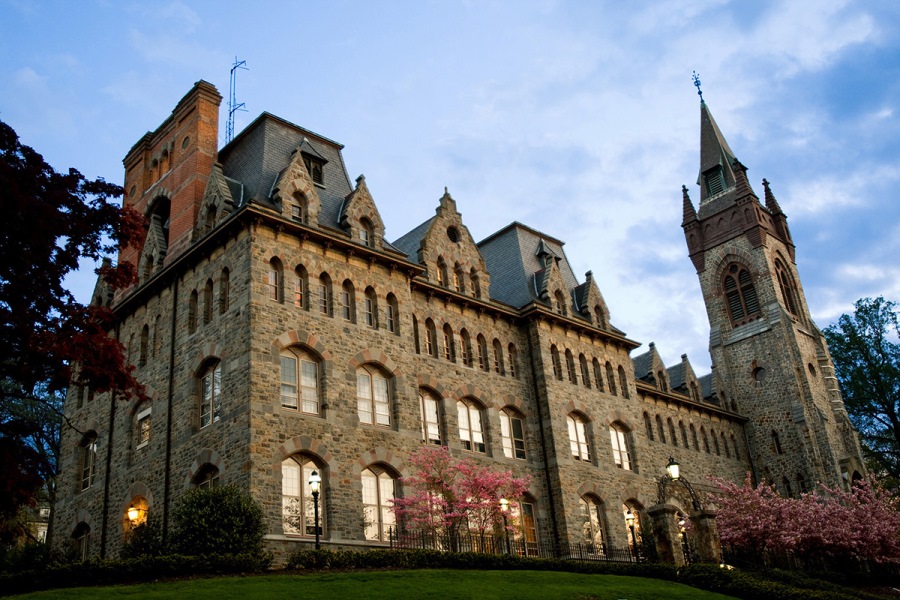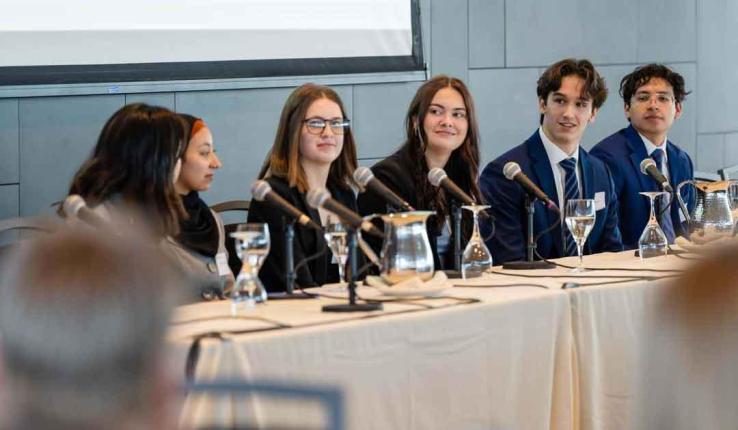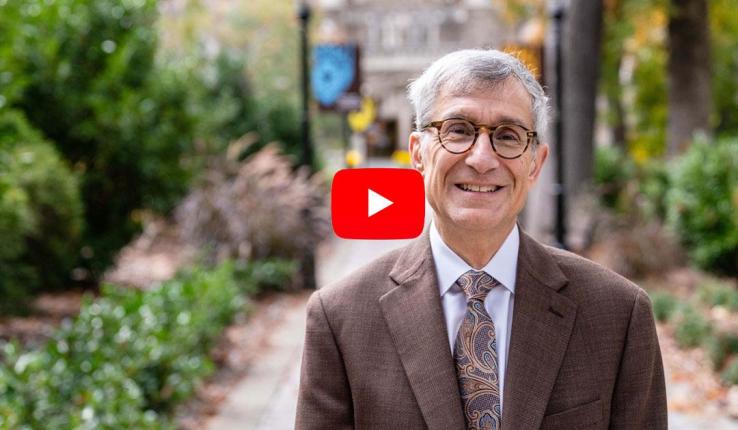Exploring what it means to be a global citizen
Understanding what it means to be a member of a dynamic and evolving global world is at the heart of Lehigh’s innovative Global Citizenship Program.
The unique certificate program brings together students from all three undergraduate colleges and from all majors, whether they are studying engineering, science, business, arts, humanities or social sciences.
In addition to their courses, students are required to complete two experiences abroad and are provided with opportunities for leadership and co-curricular activities.
“Lehigh’s Global Citizenship Program challenges students to think critically about social change in light of economic globalization,” said David Fine, the program’s assistant director.
“Through international travel, community engagement and course work, students investigate their responsibilities—both moral and political—to a diverse, complicated and interconnected world. The program emphasizes conversations across difference, interdisciplinary application, and mindful civic action.”
The program originated in 2004 with a grant from the Andrew W. Mellon Foundation. The initiative, led by Lehigh’s 12th president, Gregory C. Farrington, sought to imagine a curriculum that would enable all undergraduates, especially course-burdened engineers, to graduate from Lehigh with a significant experiential and theoretical exposure to civic responsibility in a global society. Over the years, the program has evolved and helped globalize Lehigh’s wider curriculum.
Fourth-year capstone projects
Another evolution, says Fine, is the increased visibility of the program’s fourth-year capstone projects and their relevance to the larger community.
Each cohort of approximately 20 to 25 Global Citizen students spends the four years of the program together. In their final year, the students design, propose and implement a capstone project, which is similar to a thesis project. The project is linked to a year-long course that investigates best practices for community engagement and social change.
“Reading texts like Paulo Freire's Pedagogy of the Oppressed and Virginia Woolf's Three Guineas, students ask difficult questions of power and privilege and interrogate what it means to ‘help’ others,” says Fine, who was the primary instructor for the 2015-16 capstone course. “Their capstone projects then put their personal visions of global citizenship into practice.”
This year, Global Citizenship students have worked on seven projects investigating issues such as sustainability, education, diversity and inclusion, and the campus community’s relationship with South Bethlehem.
“Enriching Differences” on campus
This week, a group of Global Citizenship students is launching its capstone project Without Walls: Enriching Differences at Lehigh aimed at fostering conversations among students on the topics of diversity and inclusion. The students hope to highlight the impact that an individual’s words and actions can have on shaping the campus climate.
The project has five parts, including three facilitated discussions and two artistic depictions. The first artistic piece will take the form of a “Wall of Hate” constructed by Lehigh groups. Students will be invited to write words and phrases on the wall that had a negative impact. Later in the week, there will be a “Teardown Ceremony” after which the group will erect a “Wall of Hope.” Students will again be encouraged to engage with the wall by writing on it. This time, they will be invited to share positive words that reflect the community they’d like to create.
“As a Global Citizenship capstone group, we want our project to be an outlet for students to vocalize their concerns about the campus climate,” said Brishty Khossein, a business information systems and marketing major, a Russian minor and a member of the group that created the project. “We believe that open dialogue and facilitated conversation about controversial topics will be an effective method of addressing and reflecting on community concerns, and we want to instill confidence in students that change can come from within the community.
“Going forward we hope our event helps acclimate Lehigh students to having difficult conversations on sensitive topics.”
Additional members of the group include Sydney Bagley, a marketing major and Africana Studies minor; Amie Diamond, a supply chain management and business information systems major and Spanish minor; and, Sasha Popova, an electrical engineering major.
The 2015/2016 Global Citizen capstone projects also include:
• Farming Economy for Educational Development (FEED)—a student-driven initiative to increase Lehigh’s food independence through an economically profitable solar-powered farm near the Goodman Campus
• Lehigh Valley Shares (LV Shares), which addresses the issue of sustainability within the Lehigh Valley and aims to decrease consumption and waste generation
• Afterschool Passport, a partnership with Lehigh’s Community Service Office to work with elementary-school students, highlighting a foreign culture each week during a six-week period
• South Side Stories, which aims to create a digital forum to share the stories of Lehigh and South Side Bethlehem community members
• Party Responsibly: The Campaign and the After-Parties, which hopes to create more informed and engaged voters on Lehigh’s campus and to foster dialogue between members of the Bethlehem and Lehigh communities
• Bethlehem: Brown and Whiteboard, which seeks to increase stock that Bethlehem residents and Lehigh University students have in the South Side by providing a platform to share their ideas for the community’s future
The Global Citizenship Program has graduated eight cohorts and plans to welcome its eleventh cohort this spring.
Story by Lori Friedman
Posted on:





